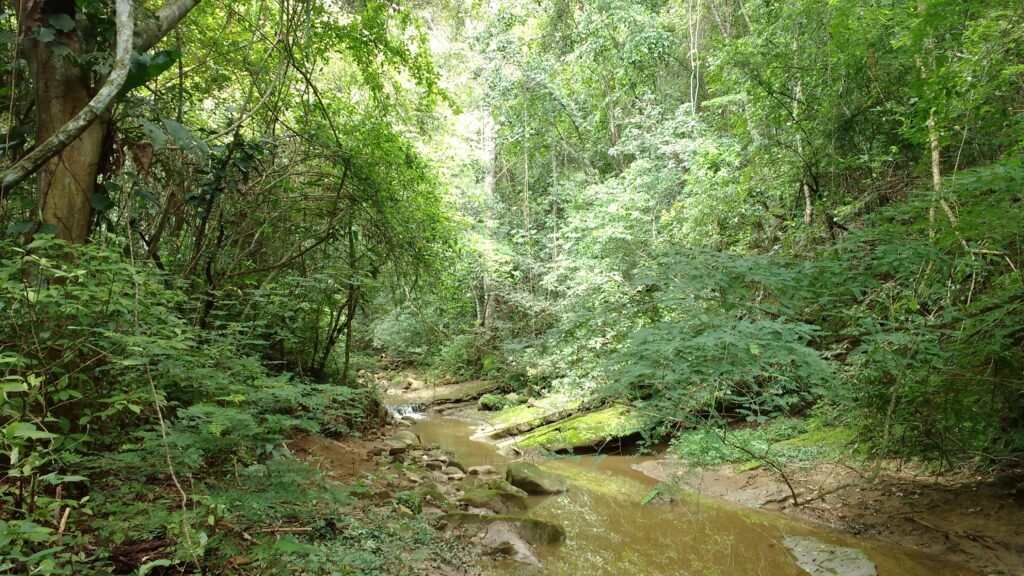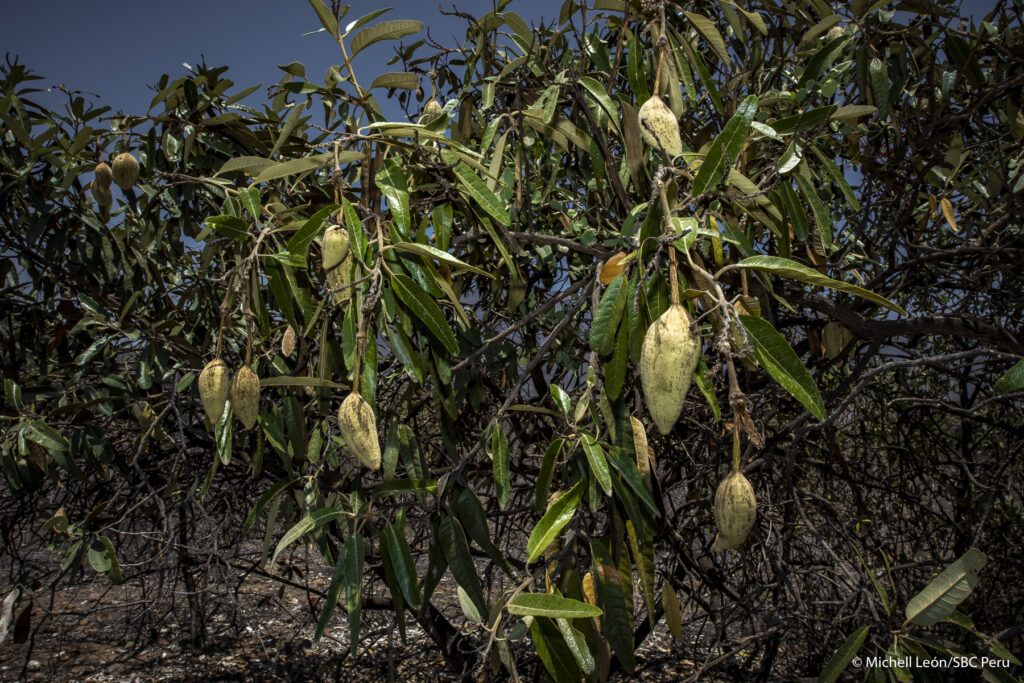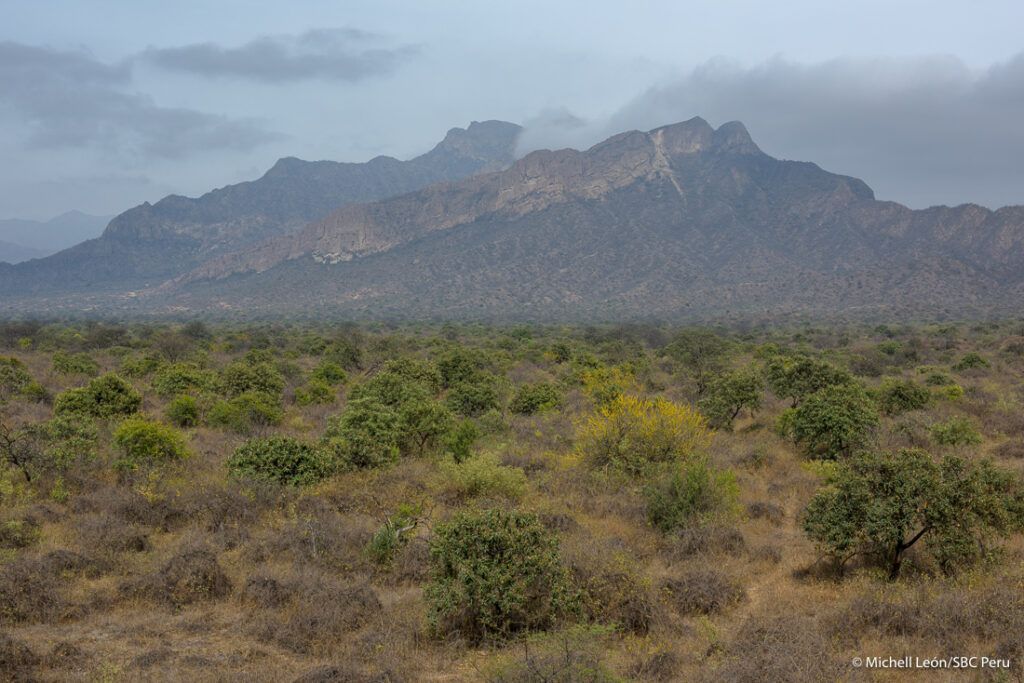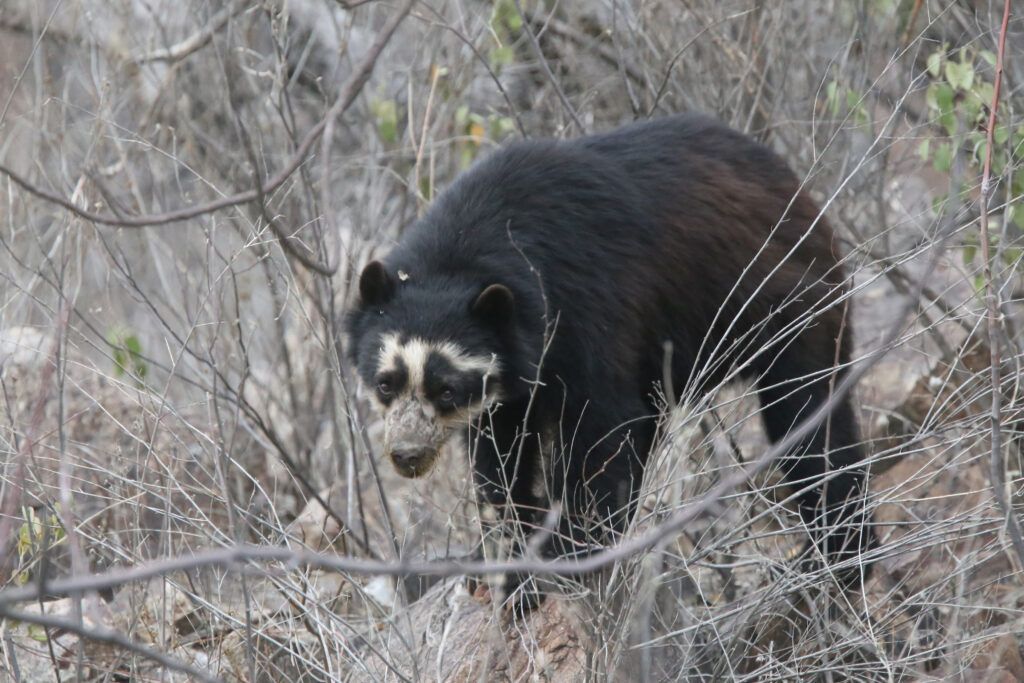South America’s forests are an ark for some of the rarest species on Earth. The lush, green canopies of northern Colombia are the only place where you can find cotton-top tamarins, Critically Endangered monkeys with distinctive white headdresses. The sun-drenched dry forest of northern Peru offers similar sanctuary to spectacled bears, South America’s only bear species. But this ship has been riddled with leaks as increased land development erases more forests and fragments wildlife populations. It’s a threat that Spectacled Bear Conservation (SBC) and Proyecto Tití (PT) have spent years fighting, and their long-term strategies to secure forests have recently gained new ground.
Urban development, cattle ranching, and unsustainable agriculture cause widespread deforestation throughout South America, often with little regard for wildlife. Cotton-tops spend their entire lives in the treetops, subsisting on fruit and insects without ever touching the ground. Clearcutting deprives them of food and shelter, dividing their tropical forest into smaller patches that isolate cotton-top groups from one another. In Peru, spectacled bear populations are also broken up into islands by agricultural expansion into the dry forest. Worse still, it devastates the bears’ main food source—sapote fruit. During warmer months, bears scour the rocky terrain for as much sapote as possible to build up their fat stores. This is especially crucial for female bears to reproduce and care for their cubs. There are only a few sites left that contain this fruit, and if the sapote disappears, so too will the bears.
Owning the land is the best way to permanently preserve forest habitats, so PT and SBC are focusing on this strategy. In 2021, thanks to the generous investment of donors, SBC completed their first private land purchase—over 600 acres with a high density of sapote trees. Their goal is to purchase adjoining land that also has sapote, thus preventing bear starvation, and to reconnect fragmented bear populations to improve genetic diversity. This land will forever remain protected habitat under the management of SBC, who will restore it and collaborate with surrounding communities to bolster bear conservation efforts.
PT has spent years restoring and expanding cotton-top forests in Colombia. To date, they have purchased nearly 645 acres to form their Los Titíes de San Juan Reserve, with plans to purchase another 439 acres soon. They also planted over 26,000 native tree saplings within the reserve and existing forest corridors that connect cotton-top habitat. These saplings were grown from seeds that PT staff gathered and propagated within their reserve’s nursery. Conservation agreements made with farmers also allow PT to plant saplings on portions of their land, creating new corridors totaling about 2,000 acres, in exchange for training, equipment, and other support for their livelihoods.
SBC is currently raising money to purchase nearly 5,000 more acres—land with enough sapote to prevent Peru’s dry forest bears from going locally extinct—and PT continues expanding protected forests one sapling at a time, with the aim of creating a 20-mile corridor for cotton-tops between two national protected areas. By purchasing land, these organizations are protecting vital habitats in perpetuity for bears, cotton-tops, and all animals living within these ecosystems.
Support Spectacled Bear Conservation




